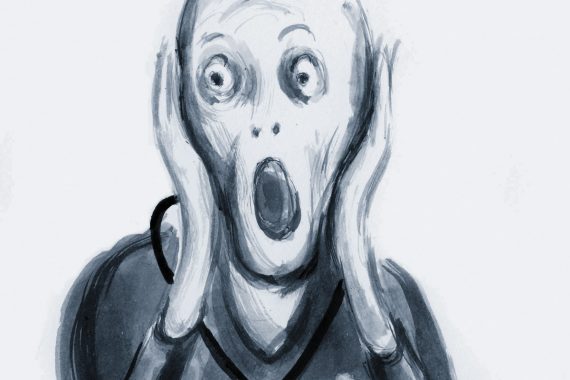Over the years, all the key benefits of being a GP have gradually been whittled away: the respect from our patients, the lack of interference from politicians and the limitless supply of branded sticky notes from pharmaceutical reps.
All a dim and distant memory. But now we’re faced with the toppling of one of the most fundamental and sacred GP pleasures of all, and our favourite answer to patients. And that’s the freedom to refer. To take a GP-centric point of view – because that’s all that matters – referral to a consultant is win-win. Patients assume they are being taken seriously by us and that they will receive top-notch care from the specialist (of which both, one or neither may be true), and the process gets the patient off the GP’s back (which is absolutely true).
No longer. Though, when I say we’ve lost the freedom to refer, what I mean is that we’ve lost the security of knowing what making a referral actually means. It used to involve the specialist temporarily taking over that bit of the patient’s care. But now, when I refer, I literally have no idea what will happen.
So instead of confidently saying to the patient, ‘I’m going to refer you to a consultant’, I find myself umming and aahing something like, ‘I’m going to send an email somewhere to someone who might do something someday, so you can expect to be contacted sometime, probably’.
Because you cannot predict what will follow. The dementia clinic might bounce the patient back until I’ve done an in-date B12 or folate, the cardiology service may refuse to play ball until I’ve attached an ECG, and the renal unit will quite probably insist on some kind of proof that I did actually go to medical school.
And if we successfully negotiate those hurdles, what then? Well, Emotional Wellbeing and Mental Health Service might send a depressed, self-harming adolescent a fun pack of patronising leaflets and broken weblinks. The musculoskeletal team may provide hands-on physio from a distance of a few kilometres. And the mental health triage might pass my referral onto the Early Intervention in Psychosis Team because he’s too psychotic for the First Response Team and the EIPT will decide he’s not psychotic enough for them and instead ask for a second response from the first response team – with that response being to tell him to speak to his GP.
If my request does end up in the lap of a real consultant, the patient will go through a revolving door to the straight-to-test route, thereby ejecting them straight back to me, or I’ll receive unsolicited Advice and Guidance advising me that I must try harder.
And if I do, and eventually, incredibly, somehow, the patient gets an actual appointment with an actual specialist, then it will be remote and involve the phone ringing twice on a day different to the one promised, prompting a ‘DNA discharge’ letter inviting me to re-refer if necessary.
It’s almost as though hospitals no longer want to see any patients.
In short, the general practice gatekeeper role has degenerated into our desperately trying to find the gate and then scrambling to unpick all the secondary care padlocks before we’re crushed by a stampeding herd of patient-cattle.
In better news, I have discovered a leftover pack of sticky notes.
Dr Tony Copperfield is a GP in Essex. Read more of Copperfield’s blogs at http://www.pulsetoday.co.uk/views/copperfield
Pulse October survey
Take our July 2025 survey to potentially win £1.000 worth of tokens














…fond memories of prawn sandwiches….
Brilliant. Like you said – dim and distant.
On a good note, my tendon hammer has converted into an echo probe, my otoscope is now a colposcopy unit and my blood pressure cuff is a dermatoscope-come-endoscope. I have bought some binoculars from Lidl which I think can be tweaked into a community CT scanner and the local authority have at last added sertraline into the tap water to remedy any background and imminent nonsense that seems most infectious. So, we now have all the self-investments, resilience and communication skills to deal with everything the future of primary care has to offer. Guess work is of course plentiful.
Or they will see a nurse specialist who cannot prescribe.
Would be funny if it wasn’t so true. Throughout my caaeer (doctor since 1981) people have been saying the NHS won’t survive. The thing is that we have failed to notice that it is dead.
Non functioning HS. The waiting times for some urgent matters such as Epiletiform fits is over 2 years in NI, as it is for many other specialities. My patients just go privately now, if they can afford it. If not, they suffer for years and some never make it, dying after waiting 8 years for a hip., for example. The secondary care NHS only works for the rich in many specialities. The equal access to health care principle is long dead. Perhaps no nation can afford health care free at point of contact, because essential health care delayed is no health care. The NHS is so bad now, it is sad. I feel for my poorer patients who cannot access timely health care in Britain
Exactly. In early February my patient with a lung abscess who had just come out of intensive care in Portugal to fly home for an ‘urgent’ consultant follow-up was given an ‘urgent’ appointment on July 22nd. I dutifully sent off an A&G for the consultant services to actually read about and triage the problem. They were ‘brilliant’ and said they would act immediately and give the first available appointment. 1 week later his appointment had been brought forward – by 4 days to July 18th- at least it is in 2022, I suppose.
Needless to say this was followed by a 2WW request which has been summarily rejected.
And I suppose they will complain when he attends as an emergency in extremis.